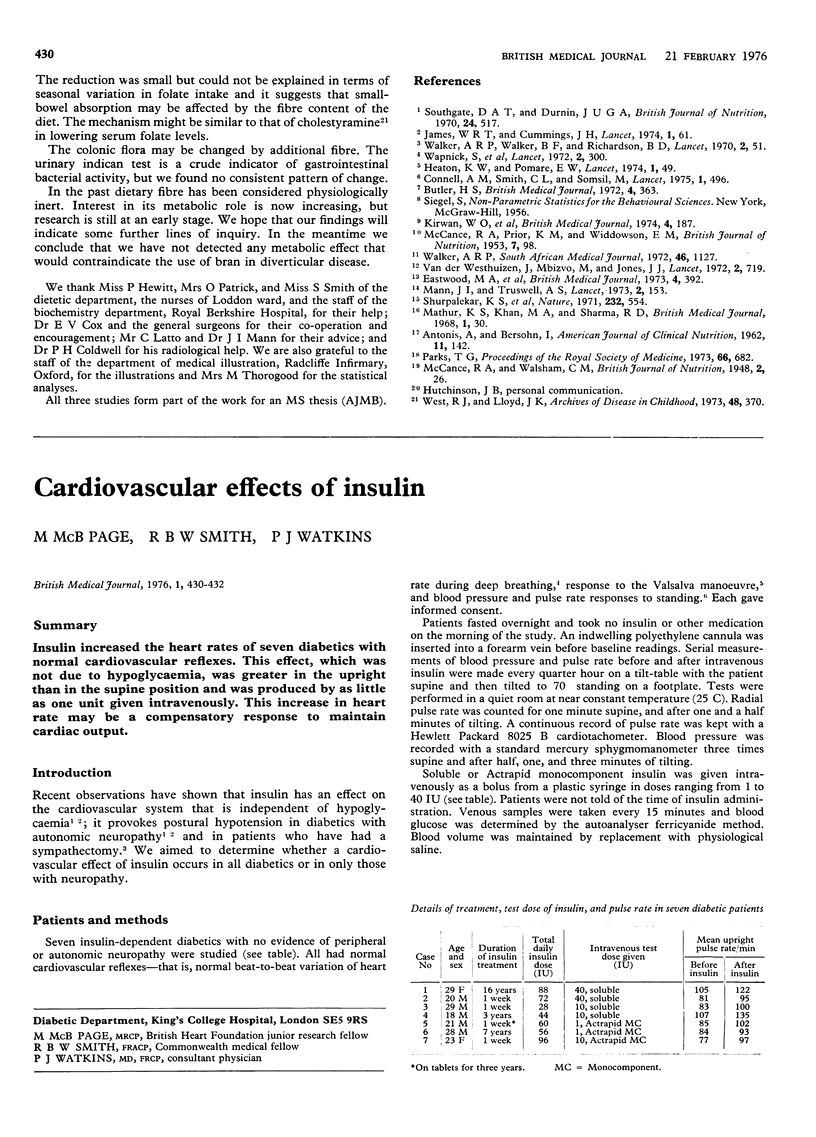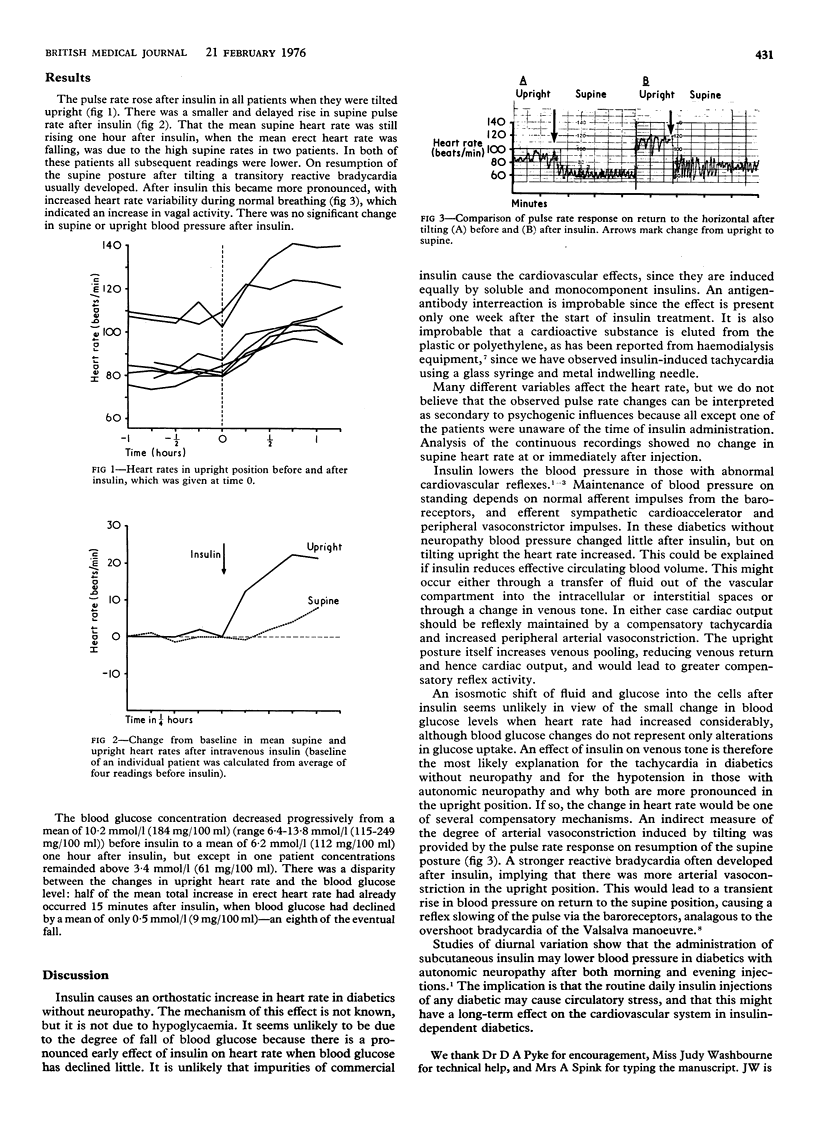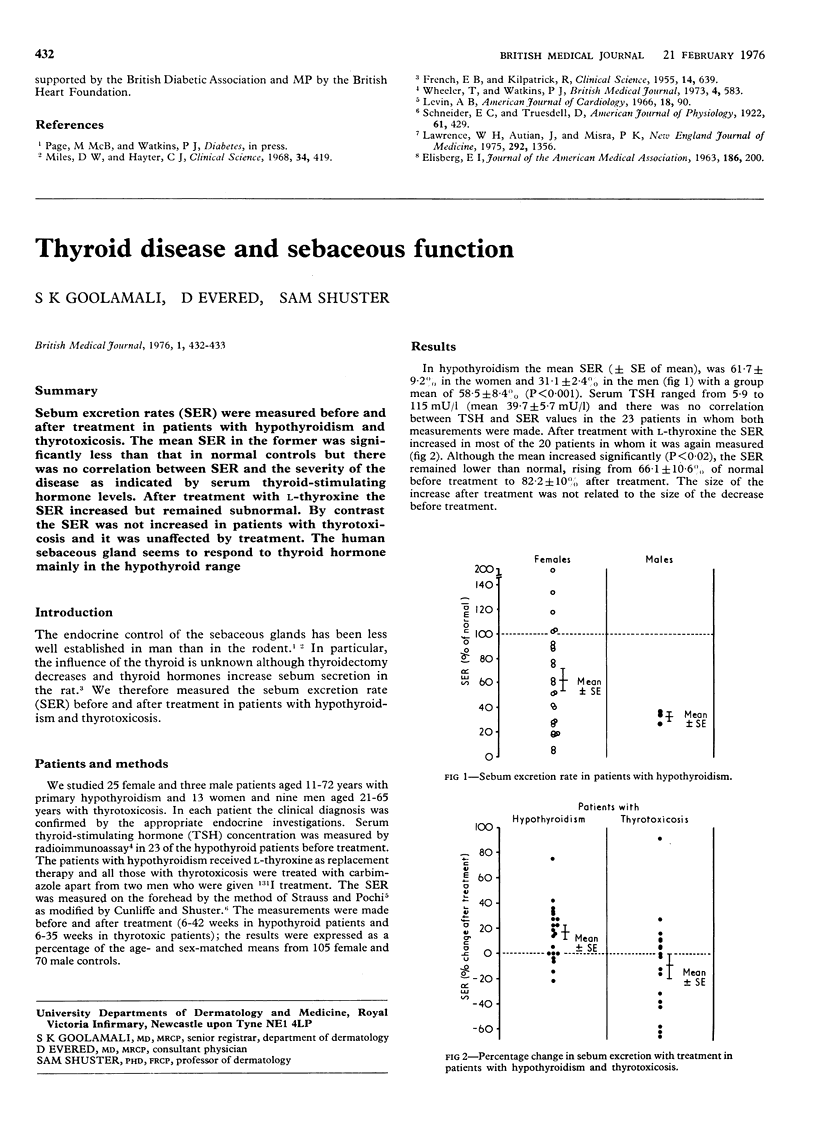Abstract
Insulin increased the heart rates of seven diabetics with normal cardiovascular reflexes. This effect, which was not due to hypoglycaemia, was greater in the upright than in the supine position and was produced by as little as one unit given intravenously. This increase in heart rate may be a compensatory response to maintain cardiac output.
Full text
PDF


Selected References
These references are in PubMed. This may not be the complete list of references from this article.
- ELISBERG E. I. HEART RATE RESPONSE TO THE VALSALVA MANEUVER AS A TEST OF CIRCULATORY INTEGRITY. JAMA. 1963 Oct 19;186:200–205. doi: 10.1001/jama.1963.03710030040006. [DOI] [PubMed] [Google Scholar]
- FRENCH E. B., KILPATRICK R. The role of adrenaline in hypoglycaemic reactions in man. Clin Sci. 1955 Nov;14(4):639–651. [PubMed] [Google Scholar]
- Lawrence W. H., Autian J., Misra P. K. Letter: Cardioactive substances leached from a commercial hemodialysis set. N Engl J Med. 1975 Jun 19;292(25):1356–1356. doi: 10.1056/NEJM197506192922524. [DOI] [PubMed] [Google Scholar]
- Miles D. W., Hayter C. J. The effect of intravenous insulin on the circulatory responses to tilting in normal and diabetic subjects with special reference to baroceptor reflex block and atypical hypoglycaemic reactions. Clin Sci. 1968 Jun;34(3):419–430. [PubMed] [Google Scholar]


